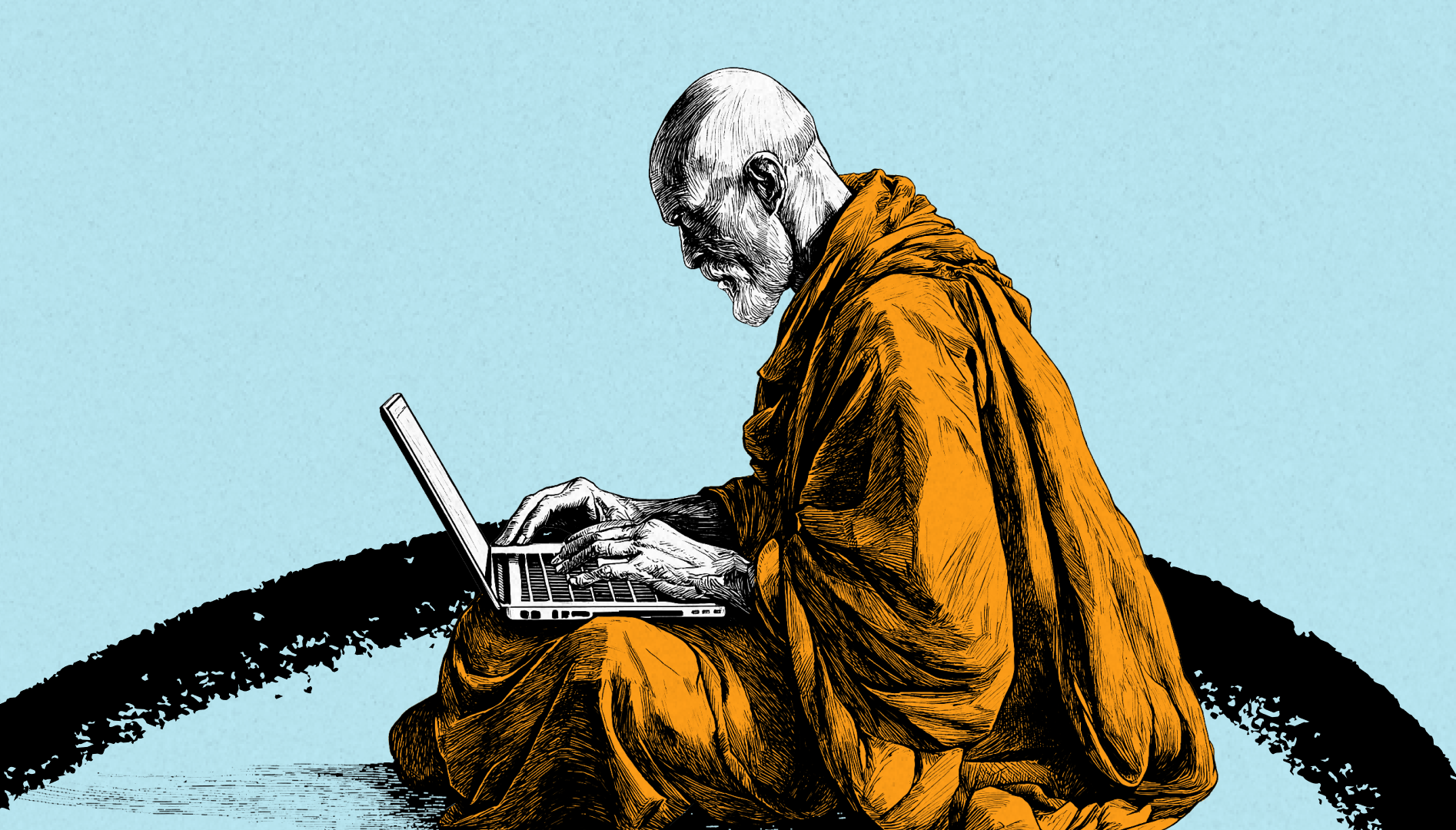
Sponsored By: Retool
This essay is brought to you by Retool at Scale - Join our exclusive live stream; 9:00am - 10:00am PST, November 16, 2023, featuring Pinterest. Discover how they transformed their internal processes, standardizing tools for 1000s of employees.
When I was in my late twenties, I fantasized about joining a monastery. Learning more about the monks changed how I think about business.
I had just left my first startup, and I was exhausted. Even though we’d had a small exit, I only had a year of runway to figure out what to do next. Monastic life seemed like a hack for solving the money problem. I imagined spending days meditating, reading the classics, and engaging in communal life—without the pressures of capitalism and rent in New York City.
At the time, a friend of mine was doing a nine-month retreat at Blue Cliff Monastery, a Buddhist center in upstate New York in the tradition of Thích Nhất Hạnh. I visited him for a few days and ended up chatting with one of the older monks about money.
He told me that the monastery was going through financial difficulties. Thích Nhất Hạnh had suffered a stroke in 2014. Up to that point, Hạnh had done yearly teaching tours in the U.S. that brought in donations and new members. Thích Nhất Hạnh also had a calligraphy practice, and his art was sold online and at the monastery to people who came for short stays.
These had been significant drivers of revenue, and after Thích Nhất Hạnh's stroke—well, the numbers didn't quite work the same. A small group of monks and nuns was attempting to solve the problem, and had brought in consultants to help with fundraising and create a roadmap for financial sustainability that relied less on Thích Nhất Hạnh (he finally passed away in 2022).
It turns out that even in a monastery, someone needs to take fiscal responsibility. Monasteries still exist within a capitalist society and need a solid enough financial model to make sure their monastics have food to eat, a place to sleep, and access to healthcare.
This was the first time I realized that there was no escape from the money problem. To do meaningful work in the world, you have to care about margin as much as you care about mission. This realization set me off on a journey to understand how businesses can achieve both profitability and impact.
Learning to take money seriously
When I started Hacker Paradise—a travel company for digital nomads—it was because I wanted to see the world, meet new people, and work on side projects. And while it largely enabled me to do that, it also taught me a lesson on the importance of margin and revenue.
As a business operating in the real world, we dealt with logistics in a dozen different countries, had high variable costs, and encountered emergencies like landslides and coups. Even as we grew 50-100% year over year, our costs and operational complexity grew as well. It often felt like we were running hard just to stay in place.
During my travels, I got to know the founders of social media app Buffer, whom I met at a 2015 conference in Berlin. As the leaders of one of the first remote companies, they were also freely traveling the world. But on top of that, they were experimenting with some crazy ideas, from transparent salaries to getting rid of all managers.
It seemed like a more fun, creative way to build a business. But at Hacker Paradise, we didn't have the breathing room to try any of these experiments; we were busy trying to keep our heads above water. Since Buffer had software margins and was so freaking profitable, they were able to take greater risks to create a unique company culture.
The Only Subscription
You Need to
Stay at the
Edge of AI
The essential toolkit for those shaping the future
"This might be the best value you
can get from an AI subscription."
- Jay S.
Join 100,000+ leaders, builders, and innovators

Email address
Already have an account? Sign in
What is included in a subscription?
Daily insights from AI pioneers + early access to powerful AI tools







Comments
Don't have an account? Sign up!
Fantastic post -- thank you for framing the ethical parameters so clearly but not stopping there. The practical recommendations at the end are relevant to projects I have going and were tremendously helpful.